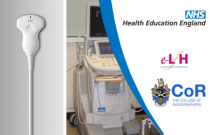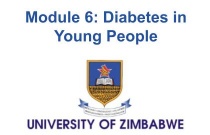Manufacturers of COVID-19 Rapid Diagnostics Tests: BD and DiaSorin
Celine Roger-Dalbert, Massimo Rosa, Gian Antonio Ginipro, and Verna Ndongeni
On 29 January 2021, ASLM’s LabCoP hosted the 10th session in a series about manufacturers of COVID-19 molecular diagnostic tools, featuring BD (US) and DiaSorin (Italy). Laboratory diagnosis remains the cornerstone for the control of COVID 19. New diagnostic methods with higher sensitivity and specificity, as well as faster resu....
Testing Strategy for COVID-19 Antigen Rapid Diagnostic Tests
Sikhulile Moyo, and Yenew Kebede
On 22 January, 2021 this COVID-19 ECHO session was convened to discuss testing strategies for COVID-19 antigen rapid diagnostic tests (Ag RDT) and Africa CDC’s testing guidelines and recommendations. The start of 2021 has seen new challenges arise in the COVID-19 pandemic, with rapidly growing spread and new virus variants. To u....
Postpartum Hemorrhage
Dr Sarah Little
This module provides training and mentorship instruction for management of postpartum hemorrhage.
Hypertensive Disorders in Pregnancy
Dr Sarah Little
This module provides training and mentorship instruction for management of Hypertension Disorders in Pregnancy.
Webinar: Two or Three Times a Week…How do You Know?
Lucy Spencer
The conventional approach to initiating maintenance haemodialysis is a thrice-weekly schedule. A stepwise approach, incremental haemodialysis with once or twice weekly treatments, may be considered for patients with substantial residual kidney function (RKF). Despite increasing attention and enthusiasm for incremental dialysis,....
Common Clinical Problems: Imaging the Septic Patient Post-Abdominal Surgery
Derrian Markham
In this session, you will learn how to investigate septic patients after abdominal surgery. You will learn through a series of interactive images how to identify the cause of sepsis and the relative merits of the plain abdominal x-ray (AXR), ultrasound and computed tomography (CT) in the diagnostic and therapeutic pathway.
Organ Trauma: Splenic Trauma
Mansoor A Khan
This session will provide an overview of the anatomy of the spleen, and the aetiology and management of splenic trauma.
Neurology & Neurosurgery: Coma
Nick Carleton-Bland
This session outlines the diagnosis and management of traumatic and non-traumatic CNS aetiologies and extracranial aetiologies of coma and the principles of assessment of brain stem death and understand its relevance to continued life support and organ donation.
The Emergence of Voluntary Assisted Dying in Kidney Disease
Andrew Denton
Voluntary assisted dying (VAD) laws have been passed in all Australian states and New Zealand, giving people who meet the eligibility criteria the option to ask for medical help to end their life. But how does VAD work when there is a life-sustaining treatment such as dialysis where a patient isn't usually expected to die within....
Lesson 3: Assessing for CAB-LA Clinical Contraindications/Eligibility
Jhpiego, an affiliate of Johns Hopkins University
This lesson outlines the steps in CAB-LA clinical eligibility assessments to identify any contraindications to use.
Introduction to Medical Oxygen Use
Norman Lufesi, Raphael Kayambankadzanja, Happy Banda, Jonathan Mhango, Eneli Kaliphee
This session introduces participants/learners to Medical oxygen as a life-saving essential medicine that is widely used in healthcare, contexts in which it is used as well as sources and devices used.
Oxygen Flow Splitting
Norman Lufesi, Raphael Kayambankadzanja, Happy Banda, Jonathan Mhango, Eneli Kaliphee
The knowledge gained from this session will help to ensure Healthcare Workers are able to effectively use Flow Splitters which are essential devices especially in low-resource medical settings, providing a reliable and efficient way to distribute oxygen to multiple patients from a single source.
Oncology & Palliative Care Nursing Program
AMREF Health Africa
This is a one-year higher diploma programme for nurses. It is designed to produce Oncology Nurses who are competent in providing holistic, evidence based care to patients with life threatening conditions including cancer as well as in managing palliative and oncology care services. Further, the program prepares the graduates to....
Point of Care Testing Certification Training
Akindele Opeyemi
4.75 Hours
Accredited by the Skill Development Council Canada, the Point of Care Testing certification course equips nurses, physicians, pharmacists, and community health workers in both developed and developing countries with the knowledge, skills, and technology to improve diagnostic accuracy and patient outcomes by testing their patient....
Pregnancy-induced hypertension and pre-eclampsia
Aimee Yarrington
Hypertensive disorders are the second most common cause of maternal deaths worldwide. Pre-eclampsia is the cause of 9 to 26% of global maternal mortality and a significant proportion of pre-term births. The incidence is increasing in keeping with the increase in obesity, maternal age, and women with medical comorbidities enterin....
Hypertension
Alistair Calder
This session provides an interactive review of the role of radiology in the management of hypertension in children.
Abdominal and Thoracic Ultrasound: Lung Ultrasound
David Lewis
This session will describe normal ultrasound appearances of the lung and pleura. Common pathologies including pneumothorax, pulmonary oedema and pleural fluid will be discussed as well as pitfalls to avoid.
Abdominal Ultrasound: Miscellaneous
Hazel Edwards
This session considers the sonographic appearance of bowel, abdominal lymphadenopathy and ascites. It will provide a basic overview and discuss common pitfalls to avoid. Tips on reporting will be offered.
Abdominal Ultrasound: The Liver - Session 2
Jane Smith
This session builds on the normal technique and appearances discussed in 'Abdominal Ultrasound: The Liver - Session 1'. It outlines common pathology, some pitfalls in scanning the liver, and addresses the final scan report.
Abdominal Ultrasound: The Liver - Session 1
Jane Smith
This session outlines the ultrasound appearances of the liver and the technique used to achieve an optimum examination. It also considers normal anatomy.
Image Interpretation of the Thoracic Spine: Session 1
Lisa Field
This session will look at injuries related to the thoracic spine. It will focus on identifying anatomy demonstrated on both diagrams and radiographs, and offer examples of radiographic technique. Mechanisms of injury (MOI) will be discussed to develop a knowledge base in clinical presentations. Common fractures, dislocations, pa....
Module 5: Diabetes in Pregnancy
Dr Trust Zaranyika, Dr Nickson Mukapa and Dr Moris Chiwanza
By the end of this module, participants will have an understanding of the management of the diabetic woman before, during and after pregnancy.
Module 8: Complications and Diabetes
Dr Trust Zaranyika, Dr Nickson Mukapa and Dr Moris Chiwanza
By the end of this module, participants will have an understanding of managing, complications of Diabetes
Module 6: Diabetes in Young People
Dr Trust Zaranyika, Dr Nickson Mukapa and Dr Moris Chiwanza
By the end of this module, participants will have an understanding of managing young people with diabetes.
Vicarious Trauma
Simon Githui
1.00 Hours
When you work in public health you have direct contact with consumers and their lives. As you may have found, your compassion for those you work with can affect you in positive and negative ways. This course will help you appreciate the dangers of working with survivors of trauma and also effects of direct and indirect exposure....























